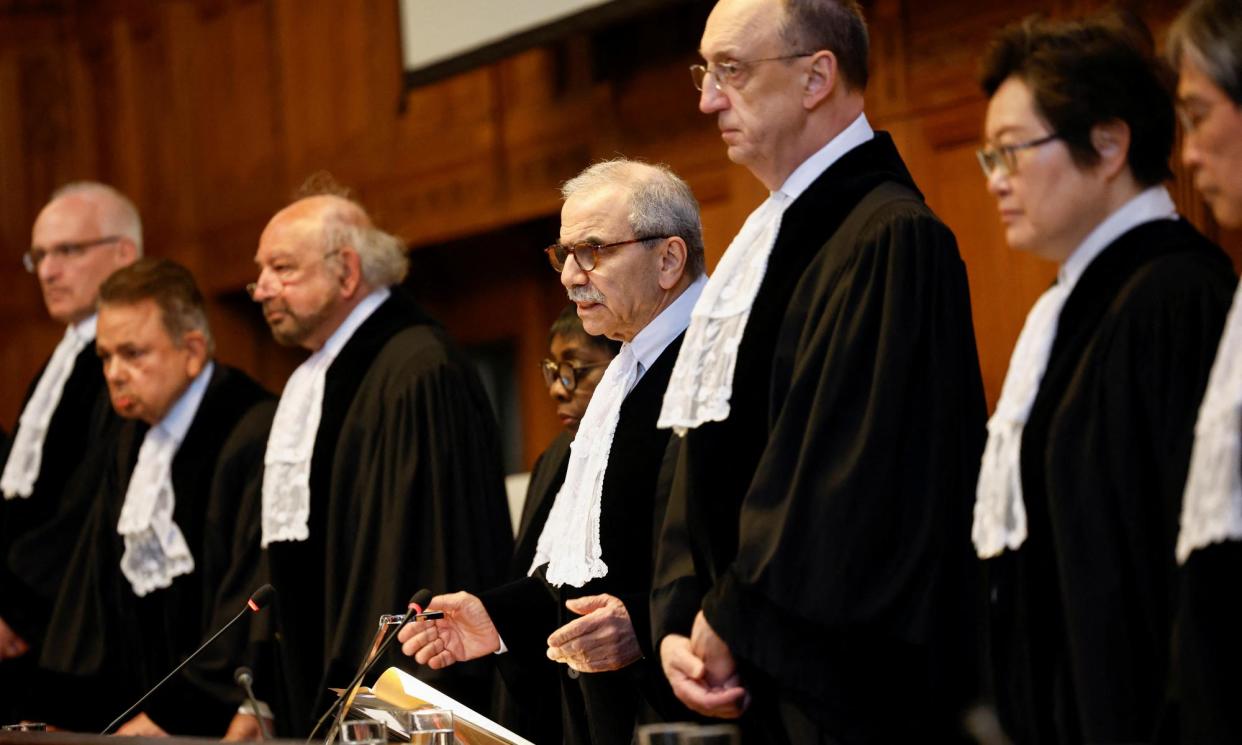ICJ rejects request to order Germany to stop selling arms to Israel

The International court of justice has rejected a request by Nicaragua to issue Germany emergency orders to desist selling arms to Israel, by 15 votes to one.
The decision, according to the judgment read in court in The Hague, is largely based on a significant decrease in recent German arms sales to Israel, the largely defensive nature of arms recently sold, and the extensive internal German government processes to consider if arms would be used to prosecute war crimes or genocide.
Nicaragua faced a hurdle in its attempt to persuade the ICJ that German arms sales made it complicit in alleged genocide of Palestinians due to the decrease in arms sales to Israel since the start of the war in Gaza on 7 October 2023.
Nicaragua claimed Germany approved deliveries of military equipment worth €326.5m (£279.2m) to Israel in 2023, 10 times as much as in 2022, but German lawyers told the court there had been a significant decrease in sales since then, falling to €1m (£855,000) in March 2024.
The court also found that only four licences for war weapons had been issued by the German government including two for training ammunition. The court accepted that 3,000 portable anti-tank weapons had been supplied, and the licence for the sale of a submarine is pending. Germany said 98 % of licences granted concerned defensive military equipment, not war weapons.
The judges also rejected that there was a requirement for Germany to continue funding the UN relief works agency as contributions are voluntary, arguing other means existed to provide humanitarian aid in Gaza.
Nicaragua had claimed in supplying weapons to Israel Germany could not have been unaware that the weapons were being used in the Gaza Strip to commit war crimes.
Nawaf Salam, the court’s president, said: “Based on the factual information and legal arguments presented by the parties, the court concludes that, as present, the circumstances are not such as to require the exercise of its power … to indicate provisional measures.”
However, the 16-judge panel declined to throw out the case altogether, in which Nicaragua alleges Germany is enabling genocide in Gaza, meaning it will continue to be heard at the court. Germany rejects the allegations.
Israel, which is not a party to the case, strongly denies that its assault on Gaza amounts to acts of genocide and insists it is acting in self-defence.
Salam said the court “remains deeply concerned about the catastrophic living conditions of the Palestinians in the Gaza Strip, in particular in view of the prolonged and widespread deprivation of food and other basic necessities to which they have been subjected”.
The German foreign ministry wrote on X after the ruling: “No one is above the law. This guides our actions. We welcome today’s decision by the International court of justice.”

 Yahoo News
Yahoo News 
